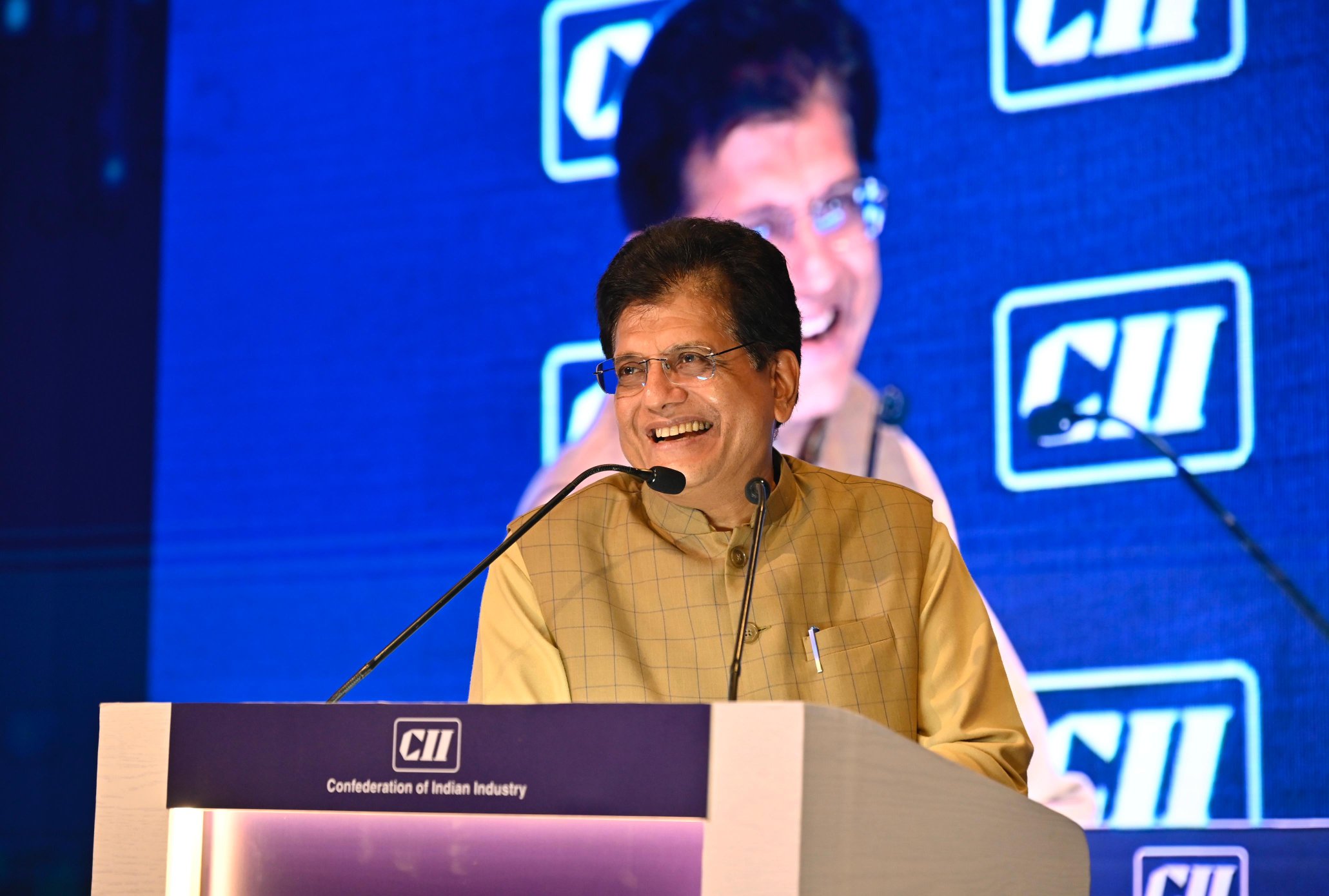India is poised to remain the fastest-growing large economy for the next three decades, with a sustained annual growth rate of 6–7%, Union Commerce and Industry Minister Piyush Goyal said on Thursday.
Speaking at the Confederation of Indian Industry (CII) Annual Business Summit 2025, Goyal said the government is aiming to push growth to 8% at constant prices.
“Even amidst international upheavals, we are among the better-performing emerging markets,” he said. “Today, India holds the world’s fourth-largest foreign exchange reserves in the world at about $690 billion. Our inflation has remained below 4% for the last three months. The Reserve Bank has done a commendable job balancing liquidity and currency management.”
Goyal emphasized that India remains an attractive investment destination. Over the past two decades, Indian companies have delivered nearly 20% CAGR returns, he noted, adding that Foreign Direct Investment (FDI) inflows continue to break records. “We are back on track on the growth trajectory, working through international trading relations,” he said.
On trade agreements, Goyal pointed to major progress on Free Trade Agreements (FTAs) with the UAE, Australia, the UK, and the four EFTA countries (Iceland, Liechtenstein, Norway, and Switzerland). “We are well on track with our bilateral trade agreement with the USA and making fast progress with the European Union’s 27-nation bloc. We have also launched negotiations with New Zealand,” he said.
Goyal said the EFTA countries have committed $100 billion in FDI over the next 15 years, potentially catalyzing a total investment of $500 billion. “This ecosystem could attract an additional $500 billion,” he added. The investment clause in the EFTA deal is the first of its kind globally, and the figures exclude contributions from Norway’s sovereign wealth fund.
Despite global volatility, Goyal said India continues to be a pillar of global growth. The International Monetary Fund (IMF) has projected that India will become the world’s third-largest economy by GDP by 2027.
Highlighting government’s sustained push for ease of doing business, the Goyal said that over 40,000 compliances have been reduced, several laws have been decriminalised, and nearly 2,000 obsolete laws have been removed from the statute book. He noted that the Jan Vishwas Bill reflects the trust between the government and people.
“The Act promotes self-certification, encourages businesses to offer suggestions to improve ease of doing business, and simplifies people’s lives. It reflects a government that trusts its stakeholders,” he said.
On the sustainability front, he pointed out that renewable energy coupled with storage is now available at ₹3.30 per kilowatt hour—among the lowest globally. “Solar and wind plus storage make a compelling case for data centres to come to India. We have a large interconnected grid with low-cost clean energy to power these centres. This is not just about sustainability – it is an economic case,” he said.
Reaffirming Prime Minister Narendra Modi’s vision for inclusive development, Goyal said the government is working to ensure that every citizen has access to quality healthcare, education, and basic needs. “Free healthcare, quality education and basic needs are being addressed. We are now seeing employment growth, and skill development centres are playing a key role. No child should be deprived, and no man should be left behind,” he said.














